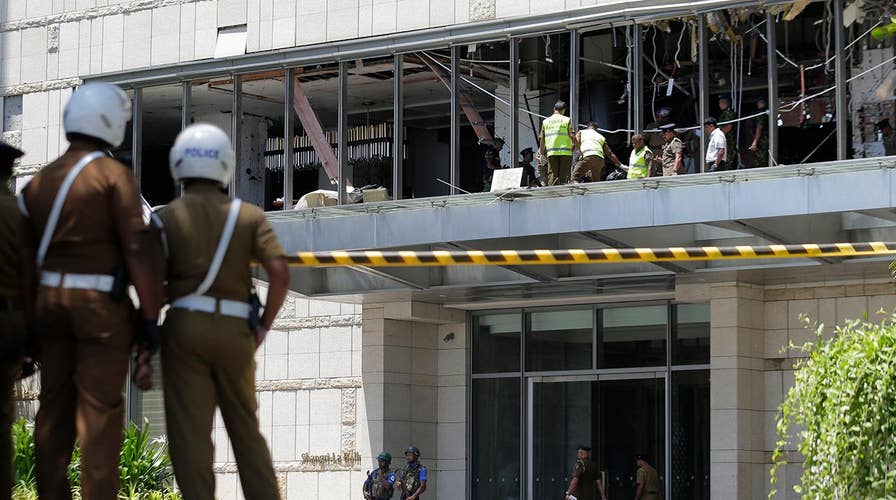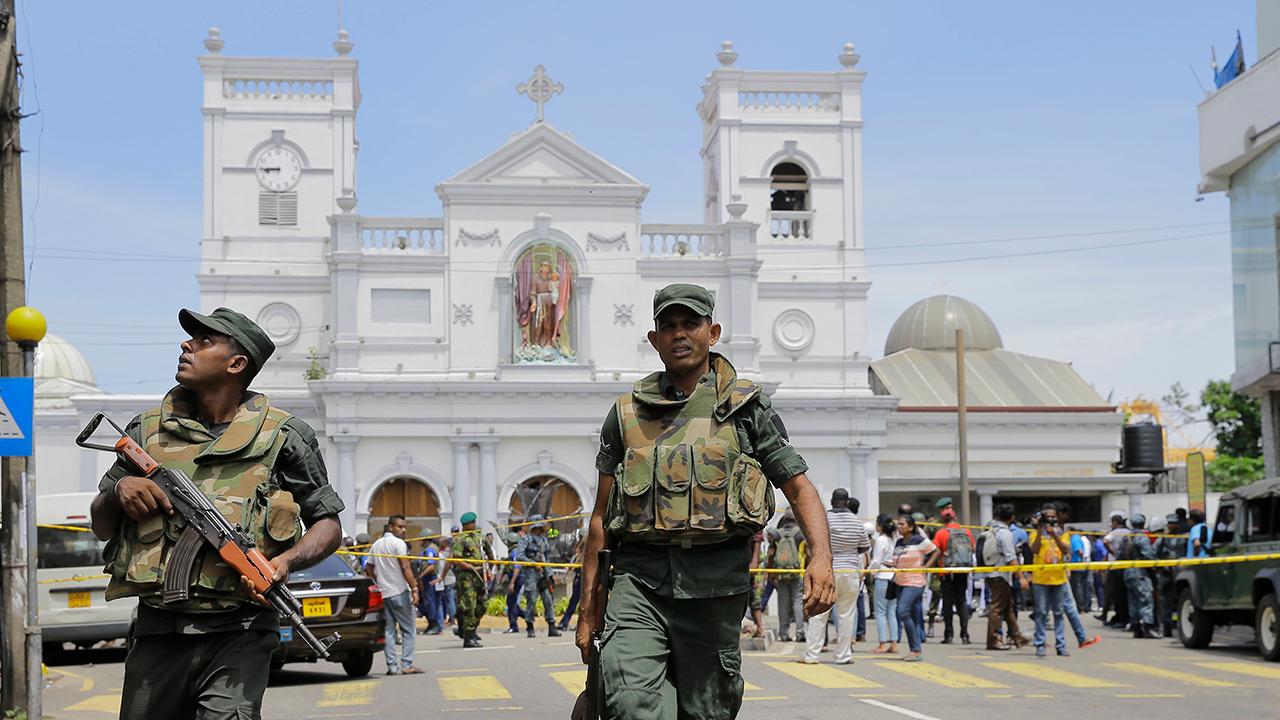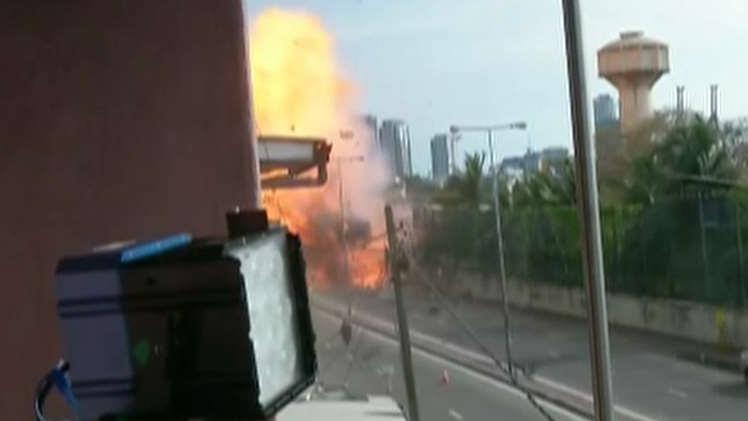Sri Lanka points to Islamic militants in series of attacks on churches and hotels
After a day of deadly Easter Sunday attacks, counterterrorism expert Bobby Chacon says the massacre shows the radical ideology is spreading.
More than a day after the Easter Sunday suicide bombings in Sri Lanka that claimed the lives of nearly 300 people, little has been revealed or said about the militant group government officials are blaming for the violence.
Multiple media reports cited Health Minister Rajitha Senaratne as saying Monday that an obscure organization called National Thowfeek Jamaath was behind the blasts that rocked churches and luxury hotels yesterday in and around Colombo – Sri Lanka’s capital and largest city.
But officials from the island nation off the coast of India still have not produced evidence directly tying the group to the bombings. Officials told The Wall Street Journal their suspicions are hinging on information received from an unnamed foreign government in the lead-up to the attacks, alleging that National Thowfeek Jamaath had been planning acts of violence. Yet those warnings, they added, were not clear enough to take action on.
Even the spelling of the group appears to have formed a divided consensus among the international news media, with translations of its name appearing in reports as everything from Nations Thawahid Jaman to National Thawheed Jama’ut.
And adding to the confusion: no militant group as of late Monday has claimed responsibility for the Sri Lanka bombings. The Associated Press has quoted Senaratne as saying that whichever group carried out the attacks likely had help from outside the country – further widening the scope of the investigation.
Sri Lankan President Maithripala Sirisena announced Monday that as of midnight tonight, the country’s military will be granted war-time powers to arrest and detain suspects in the bombings probe. The Associated Press reported 24 people are already in custody for questioning, but their names, ages and affiliations are unclear.
Anne Speckhard, the director of the International Center for the Study of Violent Extremism, told the New York Times that National Thowfeek Jamaath’s mission is to generate hate, fear and divisions through the spread of the global jihadist movement.
The group originated in 2009 on Sri Lanka’s east coast and became known for vandalizing Buddhist statues and stoking religious tensions, according to The Wall Street Journal.
In March 2017, the group was involved in a clash in the Muslim-majority town of Kattankudy – near one of Sunday’s church bombing sites – that left three hospitalized and resulted in 10 arrests, the New York Times says, citing a local media report.
The Indian Express website says the group was formed in Kattankudy and has been pushing for Sharia law in the region.
Yet the Easter Sunday bombings would represent a new – and radical -- escalation of violence for National Thowfeek Jamaath and its supporters.
CLICK HERE TO GET THE FOX NEWS APP
“This attack took a lot of planning, which is surprising for a group that most have never heard of,” Raffaello Pantucci, a member of the London-based Royal United Services Institute for Defence and Security Studies think tank, told The Wall Street Journal. “That makes me suspect that there is an external link, and Islamic State or Al Qaeda are the obvious suspects.”
Researchers also told the newspaper that Christians and Westerners are increasingly coming under attack by extremists in Asia and Africa.











































